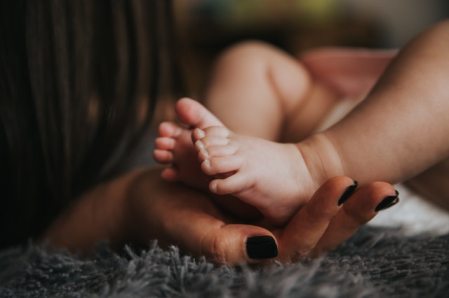At 19, Clare became pregnant. Was it intentional? Her mother didn’t share – perhaps she didn’t know – if Clare intentionally came off the pill, if there was a reaction to antibiotics, or she’d had a stomach virus. 
Regardless of how, sperm had met egg and cells were dividing – life had begun.
Clare was in a steady relationship with her boyfriend. It was likely steadier than her home life, which had seen its share of trauma and upheaval through family breakdown.
Her father had remarried, to a younger woman not much older than Clare herself. A second family had been born. It was a messy break-up – her mother had had an affair, walked out of the family home – all rolled up in the mess of alcohol and emotional abuse from both sides of the family tree. For Clare, life, love and relationships were not simple. Are they ever? In the mess of the break-up, Clare and her siblings had opted to live with their father.
Clare’s father had himself a new family, one that looked secure. One where two new babies were loved and cared for. Babies that were taking his attention. Is it too hard to imagine that Clare observed that and thought, ‘Well, why don’t I become a Mum too?’
We all seek love and acceptance. Perhaps Clare was seeking to create her own, secure, family unit. Something that allowed her to share in the extra love and attention that she had been lacking.
Regardless of why sperm had met egg and cells were dividing – life had begun.
But there was a difference between Clare and her father in regards to parenthood. He was married. She was not. As it turned out, her boyfriend – the one who supplied the sperm – did not want to be married either.
Clare was brought up on Sunday mass and Catholic rosaries. Given the science that human life begins at conception, the Church’s opposition to abortion is the principle that each and every human life has inherent dignity, and thus must be treated with the respect due to a human person.
Sperm had met egg and cells were dividing. For Clare, and her father, a life that had inherent dignity has begun and was to be treated with the respect due to a human person.
Clare lived in a small town. The inherent dignity that she was affording her unborn wasn’t offered to her. Clare’s inherent dignity was ignored in the age-old whispers and slut-shaming that so commonly accompanies small minds and small towns.
Her boyfriend’s inherent dignity – the young man who had not looked after his sperm, nor respected the consequences for Clare, and whose family was more concerned about what being a dad at such a young age could do to his career, was far, far less maligned.
Clare was sent away. Before her body began to really show that sperm had met egg and that life had begun. To a place where the baby could be born quietly, away from prying eyes, and given away to a family unable to conceive a child of their own.
Clare was sent away from those who gossiped over her inherent dignity. Over six hours away from the family home. It was a long, lonely, difficult time.
Clare kept her eyes closed throughout her labour. She was giving away her baby. She couldn’t look.
Then she returned home. Sobbing in the car for the whole six-hour journey.
Only a few days later, unable to carry the burden of it, Clare did the next brave thing in her life: she demanded to be driven back and to bring her baby home.
But family of origin is a messed-up space. Humans are broken and flawed. It’s a hard thing to forgive being given up for adoption – despite knowing the love and seeing the sacrifices your single parent has made on your behalf.
“Why didn’t she want me, why didn’t she love me enough to keep me from day one?” is the question that has haunted her child ever since the reason for the lack of newborn photographs was provided.
For Clare, the same refrain could be asked of her own parents. “Why did I have to be sent away? Why was there so much shame attached?” A shame that has continued, passed onto younger sisters who spent their years in the same small town feeling like all eyes were on them, waiting to see if they too would make the same ‘mistake’ by having sex and getting pregnant when they ought not.
I wrote yesterday about there being grey in the black and white debate over the bill to decriminalize abortion in New South Wales. Clare’s story comes from the grey space.
She honoured her faith and beliefs. Sperm had met egg and cells were dividing, life had begun. A life that had inherent dignity, made in the image of God, and was to be treated with the respect due to a human person.
But she carried a lot in the grey space. A burden that her church neglected to honour. A burden that society neglected to honour. The father carried far, far less of a burden.
This is the grey. A place where women still have to count the cost of honouring life. Lower superannuation due to leaving work to have children. Gender pay gaps. Unflexible work hours. Mummy wars. Slut-shaming. Job uncertainty. Centrelink shaming. Discrimination. All the minute costs that appear to amount to little in the column of costs when stacked up against the moral positive of HONOURING LIFE. But they are there. And they weigh.
Until there is no cost in this decision, or until the cost of honouring life is born equally by both genders, there will be abortions. Their decriminalization in NSW will not change this.
So how do we work to change our society so women have more possibilities of not having to choose abortion? I think to do so we must start understanding the cost of honoring life. Christians ought to understand that best. Ought to support that best. Ought to lobby the hardest for the cost to change. After all, we follow someone who paid the greatest cost to let us live.
If you are facing an unplanned pregnancy and wish to talk to someone about your choices with compassion and without judgment, contact Diamond Women’s Support or call them on (02) 8003 4990.

